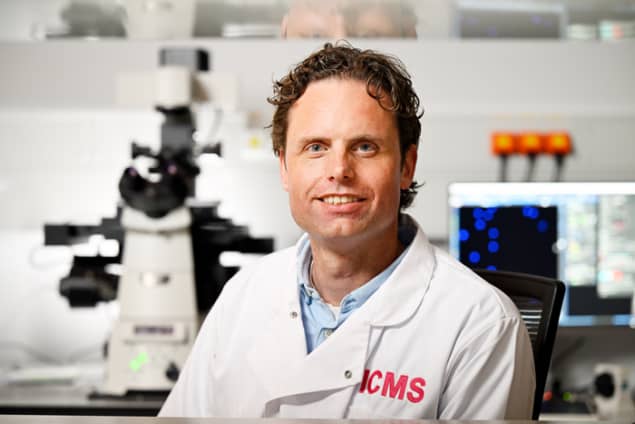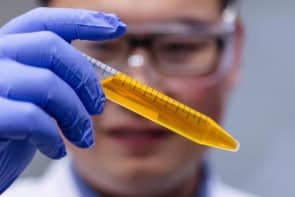
Humans are generating increasing amounts of data, yet the ability to store all of this information is lagging behind. Since traditional long-term storage media such as hard discs or magnetic tape are limited in terms of their storage density, researchers are looking into small organic molecules and, more recently, DNA as molecular data carriers.
A new technique dubbed “thermoconfined PCR” could be used to store data in synthetic DNA, say researchers at TU Eindhoven in the Netherlands. The technique, which involves localizing functionalized oligonucleotides inside thermoresponsive, semipermeable microcapsules, outperforms current DNA storage methods and provides a new approach for repeated random access to archived DNA files.
The advantages of DNA
DNA has many advantages when it comes to storing data. For one, the same amount of information may be stored in a much smaller physical volume than is possible with conventional technologies. DNA is also very stable and is thus suitable for long-term archiving. Using DNA to store data is also intuitive, since its main function in nature is to store the genetic information for all living organisms.
DNA strands are polynucleotides that combine four different nucleobases – adenine (A), cytosine (C), guanine (G) and thymine (T). It is the sequence of these bases that determines the information stored. Rather than being stored as zeros and ones, data will be encoded in the AT and CG base pairs that make up DNA. The current best method can achieve a storage density of 17 exabytes per gram, a value that is six orders of magnitude higher than achievable with current non-DNA storage devices.
In recent years, researchers have succeeded in synthesizing DNA on a large scale, meaning that using DNA for data storage is now viable. What is more, sequencing technologies – using light or nanopores, for example – have advanced to the point where high-throughput readout of DNA sequences is now possible.
Stably encapsulating DNA files
To selectively retrieve data encoded in the DNA, the polymerase chain reaction (PCR) is used to create millions of copies of the required piece of DNA. In the new study, a team of researchers led by Tom de Greef has used microreactors, the membranes of which have temperature-dependent permeabilities, to encapsulate the DNA and enhance the PCR process.
“Our method is based on stably encapsulating DNA files functionalized with the polymer biotin in individual populations of the thermoresponsive microcapsules,” explains de Greef.

Make or break: building soft materials with DNA
The researchers anchor one DNA file per capsule. Above 50°C, the capsules seal themselves thanks to their reduced permeability. This allows the PCR process to take place separately in each capsule. Next, they lower the temperature to room temperature, which increases the capsule membrane’s permeability again and makes the file copies detach from the capsule. Importantly, since the original file remains anchored to a capsule, its quality does not deteriorate, in contrast to that observed in previous PCR-based DNA data storage techniques. Indeed, de Greef says that losses currently stand at 0.3% after three reads compared with 35% for existing methods.
To make the data library easier to search, de Greef and colleagues labelled each of the files with a fluorescent molecule and each capsule has a different colour. “A device can then recognize the colours and separate them from another,” says de Greef. “A robotic arm could then neatly select the desired file from the pool of capsules.”
The technique is detailed in Nature Nanotechnology.



